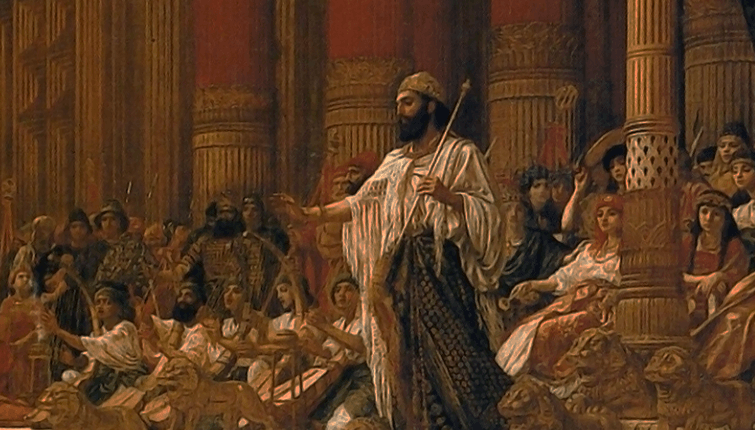King Solomon Net Worth: Ancient Wealth and Historical Riches

King Solomon’s net worth, often regarded as a benchmark of ancient wealth, offers a fascinating glimpse into the complexities of economic power in antiquity. His financial empire was not merely a product of natural resources but also of strategic trade and alliances that fostered prosperity. As we explore the multifaceted sources of his riches—from gold and precious materials to monumental architectural endeavors—a deeper understanding of his legacy emerges. The implications of Solomon’s financial strategies resonate today, raising questions about their relevance in contemporary economic practices and ethical considerations in wealth accumulation. What lessons might we draw from his reign?
Historical Context of Solomon’s Wealth
Although the biblical account of King Solomon’s wealth is often viewed through a lens of myth and legend, it is essential to consider the historical and cultural contexts that contributed to his prosperity.
The historical significance of his reign, supported by biblical references, underscores a flourishing trade network and diplomatic alliances, which facilitated not only material wealth but also cultural exchange and political stability in ancient Israel.
Sources of King Solomon’s Riches
The wealth of King Solomon can be attributed to a multifaceted array of sources that collectively established his reign as a pinnacle of prosperity in ancient Israel. His riches stemmed from extensive trade networks, enabling the influx of luxury goods, which not only enriched the royal treasury but also enhanced the cultural and economic stature of his kingdom.
| Source | Description |
|---|---|
| Trade Networks | Extensive routes connecting nations |
| Luxury Goods | High-value items like spices, gold |
| Tribute | Payments from vassal states |
| Agriculture | Fertile lands producing surplus |
| Mining | Resources from gold and silver mines |
Trade and Commerce in Solomon’s Era
As trade flourished during King Solomon’s reign, it became a cornerstone of his economic strategy and contributed significantly to the wealth of ancient Israel.
The focus on maritime trade allowed for the exchange of luxury goods, enhancing cultural connections.
Key elements of this trade included:
- Spice routes
- Textile exchange
- Precious metals
- Artistic artifacts
These exchanges facilitated prosperity and cultural enrichment.
Gold and Precious Materials
Amidst the flourishing trade that characterized King Solomon’s era, the acquisition of gold and precious materials emerged as a significant factor contributing to his immense wealth and the stability of his kingdom.
His substantial gold reserves and the collection of precious gems not only underscored his opulence but also facilitated diplomatic relations, enhancing his influence across the ancient world.
Architectural Achievements and Investments
King Solomon’s reign is marked by significant architectural accomplishments that not only showcased his wealth but also facilitated trade and commerce across the region.
The construction of monumental structures, including the famed Temple in Jerusalem, exemplified innovative architectural techniques that set new standards in design and engineering.
These investments in infrastructure not only enhanced the kingdom’s prosperity but also solidified Solomon’s legacy as a master builder.
Monumental Structures and Temples
The architectural achievements of Solomon stand as a testament to his reign’s grandeur and sophistication.
His monumental structures and temples reflect not only wealth but also deep architectural symbolism.
Key elements include:
- Temple construction techniques
- Use of local materials
- Innovative design features
- Integration of sacred spaces
These aspects collectively highlight Solomon’s vision of a united Israel under divine guidance, emphasizing cultural identity and spiritual significance.
Trade Routes and Commerce
Solomon’s architectural endeavors were not only limited to grand structures but also extended into the realm of trade and commerce, which played a pivotal role in the prosperity of his kingdom.
By establishing vital caravan routes and promoting maritime trade, he engaged in economic diplomacy that facilitated the exchange of luxury goods.
This strategic focus on commerce significantly enhanced his wealth and influence across regions.
See also: Rojgar With Ankit Net Worth in Rupees: the Earnings of a Job-Centric Youtube Channel
Innovative Architectural Techniques
Innovative architectural techniques were at the forefront of Solomon’s reign, reflecting not only his vision but also the advanced engineering practices of the time.
His achievements can be summarized as follows:
- Use of advanced ancient engineering principles
- Employment of skilled labor forces
- Integration of local materials
- Development of innovative construction techniques
These strategies not only enhanced functionality but also left a lasting architectural legacy.
Solomon’s Wealth in Modern Terms
Although historical records of King Solomon’s wealth are often shrouded in legend, modern estimates suggest that his riches would be equivalent to billions of dollars today.
By analyzing Solomon’s investments in trade, agriculture, and construction, one can appreciate their modern equivalents, reflecting a sophisticated understanding of wealth management.
His financial strategies, though ancient, resonate with contemporary principles of investment and resource allocation.
Legacy of Solomon’s Financial Wisdom
The legacy of King Solomon’s financial wisdom is captured in his proverbs, which emphasize prudent wealth management and the importance of ethical trade practices.
His strategic approach to commerce and diplomatic alliances not only enhanced his kingdom’s prosperity but also established a framework for economic relationships that resonates in today’s global markets.
This multifaceted understanding of wealth continues to inform contemporary discussions on financial ethics and international trade.
Proverbs on Wealth
While many seek financial success through various means, the proverbs attributed to King Solomon offer timeless wisdom that emphasizes the virtues of prudence, diligence, and integrity in wealth management.
Key insights include:
- Value hard work over shortcuts.
- Avoid debt and live within means.
- Invest wisely for future security.
- Share wealth generously, fostering community.
These proverbs wisdom principles remain relevant for modern financial freedom.
Trade and Commerce
A significant aspect of King Solomon’s legacy lies in his profound understanding of trade and commerce, which has influenced economic practices throughout history.
His strategic engagement in maritime trade enabled the flow of luxury goods, fostering a prosperous economy.
Solomon’s ability to leverage resources and establish trade networks exemplifies financial wisdom that transcends time, highlighting the significance of commerce in achieving wealth and stability.
Diplomatic Alliances Strategy
Diplomatic alliances formed a crucial pillar of King Solomon’s financial acumen, showcasing his ability to intertwine economics with politics.
His strategies included:
- Diplomatic marriages to secure loyalty and trade routes.
- Strategic partnerships with neighboring kingdoms for mutual benefit.
- Cultural exchanges that fostered goodwill and cooperation.
- Resource sharing enhancing economic stability and growth.
These tactics solidified Solomon’s legacy of wealth and influence.
Conclusion
The legacy of King Solomon’s wealth endures as a testament to the intersection of prosperity and wisdom. Riches amassed through trade, tribute, and natural resources illuminate the pathways of economic acumen. Architectural marvels stand as monuments to investment and ambition, while ethical considerations in wealth management echo through time. Solomon’s financial practices inspire modern discourse on wealth, reflecting a harmonious blend of material success and moral responsibility, ultimately shaping the narratives of both history and contemporary economics.




